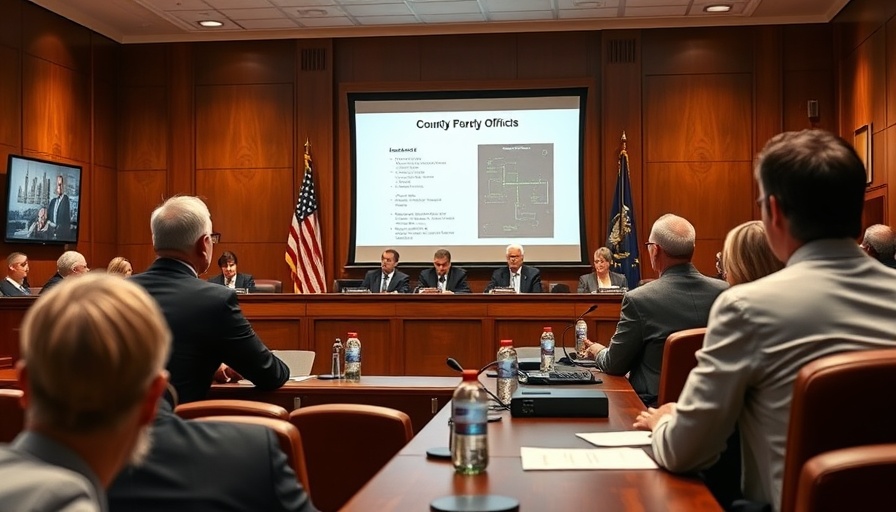
Detained but Determined: A Vermont Superintendent’s Ordeal
Wilmer Chavarria, the superintendent of the Winooski School District in Vermont, recently faced a shocking experience when he was detained for several hours at Houston's Bush Intercontinental Airport. This incident is drawing attention not only for its troubling details but also for its implications regarding the treatment of U.S. citizens by customs officials.
A Return Trip Turns into Nightmare
Chavarria was returning to Vermont after a family visit in Nicaragua when he was suddenly held up by Customs and Border Protection (CBP) agents. Despite being a naturalized U.S. citizen who had previously undergone the necessary vetting, he was subjected to an intense four to five-hour interrogation. Chavarria expressed disbelief at the severity of the scrutiny this time, stating, "I've never really been through something like I went through this week. And so something clearly has changed." This reflects a broader concern about increased scrutiny at airports, especially amid evolving immigration policies.
Questioning Rights and Legal Protections
During the ordeal, Chavarria reported being told that he had no constitutional rights while at the airport, a statement that raised alarm bells given that U.S. citizens are indeed entitled to legal protections even at ports of entry. He recounted being questioned regarding the legality of his marriage and the legitimacy of his professional status as an educator. Such line of questioning raised questions about the implications of civil liberties in the context of airport security. Chavarria pointedly noted that such an aggressive approach was unprecedented even when he was a non-citizen.
Privacy Concerns in the Digital Age
Perhaps most concerning was the treatment of Chavarria’s electronic devices. Federal law designed to protect the privacy of student information under FERPA (Family Educational Rights and Privacy Act) creates an obligation for educators to maintain confidentiality. Chavarria expressed his anxiety about submitting his school-issued phone and laptop for inspection, saying, "They harassed me relentlessly about it." While CBP stated that their searches adhere to strict regulations, the uncertainty surrounding the privacy of sensitive student data during such searches raises critical questions about digital rights versus security practices.
Implications for Travelers
This incident not only exemplifies individual distress but reflects a growing trend for travelers everywhere. As borders tighten and scrutiny increases, what does this mean for the average citizen? In Chavarria's case, apprehension about aggressive questioning and the handling of personal data could discourage travel and erode trust in the very institutions designed to protect and serve the populace. For many individuals, the experience of being detained can feel more like an unwarranted affront than a security measure.
A Call for Accountability
Chavarria’s experience causes alarm, not only for its impact on him personally but also for what it may foreshadow for others traveling through U.S. airports. Public discourse around the balance of security and civil liberties is essential, and incidents like these push communities to question government policies and practices. With many Houston residents and travelers at large impacted by such measures, an open dialogue regarding transparency and accountability in the operation of CBP is critical.
For those interested in advocating for civil rights and airport accountability, this story is not just an isolated incident but a call to action to engage in meaningful conversation around the implications of current policies and practice.
 Add Row
Add Row  Add
Add 



Write A Comment